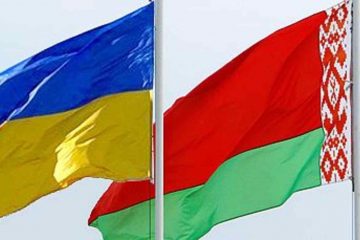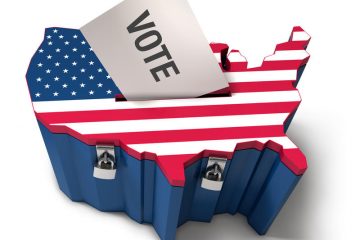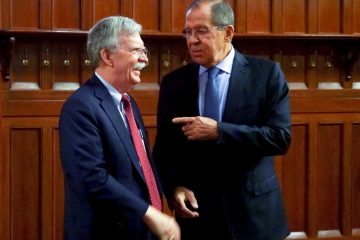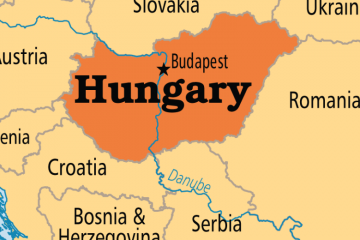Nadiya Savchenko is feted as a hero in Ukraine. Captured during fighting with pro-Russian rebels, the military pilot has become a symbol of resistance to Russia in her home country.
Here in Moscow she has been charged as an accessory to murder, linked to the death of two Russian journalists covering the conflict in eastern Ukraine between the rebels and government troops.
But the BBC has seen mobile phone data from the day they died, that her lawyers argue proves her innocence.
In December, Ms Savchenko declared a hunger strike in protest at her detention, though she recently told a prison visitor she was taking a protein and carbohydrate mix so that her “brain was the last thing to fail”.
She abandoned her fast on Thursday after 83 days, amid serious concerns for her health.
“Physically I feel lousy, but not so bad I’m about to die immediately,” she wrote in a letter addressed to all Ukrainians and made public by one of her legal team.
“[But] I’ll drink broth for a while, so if I live – it’s to fly! If I die – I’ll do so healthy! And if I’m to fight – then I’ll have strength for that,” she said, declaring a “change in tactic”.
‘Abducted’
A day before, she had looked pale and thin during a court appearance, having lost 20kg (44lb) since December. But she remained standing for parts of the hearing, and actively participated.
Answering a question from the BBC, she warned that fasting would “definitely finish me off, sooner or later”, but vowed to continue. The following day a lawyer said her condition took a turn for the worse and she agreed to abandon her protest on the advice of doctors.
The pilot, 33, has been charged with involvement in a mortar attack in Ukraine in which two Russian state TV journalists were killed.
Ms Savchenko had arrived in the area a few days previously to join the volunteer Aidar battalion, loyal to Kiev.
According to her lawyers, she was captured by rebel militants on the morning of 17 June whilst trying to reach several Aidar fighters who had been wounded in an ambush.
The spot outside the village of Metalist was close to where the journalists died, that same day.
Nadiya Savchenko next surfaced a week later in the southern Russian city of Voronezh, where she had been arrested.
She claims she was smuggled across the border, wearing a blindfold – causing international outrage, that she had been “abducted”.
Russian investigators insist she was arrested “in strict accordance with Russian law” after entering the country illegally, disguised as a refugee.
The pilot was accused of handing the location of the Russian journalists to Ukrainian troops: she could be facing a 20-year prison sentence.
‘100% alibi’
Igor Kornelyuk and Anton Voloshin from Russian state television were filming near a rebel checkpoint loyal to the self-proclaimed Luhansk People’s Republic (LNR).
Dramatic footage filmed by their cameraman – who managed to duck behind an armoured vehicle – shows huge explosions as several mortars land.
His two colleagues were killed just metres away from him. The journalists have been awarded the Order of Courage posthumously by President Vladimir Putin.
In Ukraine, Russian state-run TV is accused of pro-Kremlin propaganda. But at the award ceremony in Moscow, senior Russian officials hailed the journalists’ work seeking out “the truth” about Ukraine’s conflict, to counter “Western propaganda”.
For their families, the loss is still heartbreaking.
“The last thing I told him was to take care, that we’re waiting for him,” Ekaterina Kornelyuk remembers. Beside her, her young daughter Dasha recalled a dad who was “very brave for going there”, to eastern Ukraine, “and very kind”.
Yet one of Ms Savchenko’s lawyers says he can prove she had nothing to do with their deaths.
He showed the BBC mobile phone data supplied by Ukraine’s security agency (SBU): a series of maps, which use coloured circles to chart the location of various mobile phones belonging to the Russian TV team and Nadiya Savchenko.
“Nadiya has a 100% alibi,” Ilya Novikov says, pointing to the timings and the circles. “She was already captured when the journalists were killed,” he stresses.
“We suppose the mortars were fired because of the LNR position, not because there were journalists working there. They didn’t know that. We think it was a matter of chance,” Mr Novikov says.
Putin’s response
Nadiya Savchenko has now been in custody since late June. No trial date has yet been set and multiple appeals to the courts to release her have been rejected. The most recent attempt this week argued that she has immunity from prosecution as Ukraine’s delegate to the Parliamentary Assembly of the Council of Europe.
There was an expectation that her release had been secured in Minsk – along with other prisoners of war – during talks over a Ukrainian ceasefire, but nothing came of it.
In his only comments so far, President Putin has made it clear that the case against the pilot is a criminal one – not political – and should run its course through the courts.
There has been considerable international concern over the pilot’s plight – with appeals from the US and EU for her freedom.
Now Ukrainian President Petro Poroshenko has written to Mr Putin directly requesting his intervention, “including on health grounds”. This week, he awarded the pilot the title “Hero of Ukraine”.
The Kremlin says a response “is being formulated”, perhaps raising the possibility of a humanitarian gesture.
But for now, Nadiya Savchenko remains firmly behind bars.
Russia ‘grants Ukraine doctors access to Savchenko’
Ukrainian doctors have been granted access to hunger-striking pilot Nadia Savchenko, on trial in Russia, a Ukrainian lawmaker has said.
A team of “the best Ukrainian doctors” would examine her on Wednesday, said Iryna Gerashchenko, from President Petro Poroshenko’s party, on Facebook.
Ms Savchenko is said to have been refusing food and water since Friday.
US Vice President Joe Biden has added his voice to a global campaign for her release.
Ms Savchenko is on trial in Russia after being captured while fighting pro-Russian rebels in eastern Ukraine in 2014.
She is accused of directing artillery fire that killed two Russian journalists – a claim she denies.
In a statement, Mr Biden described Ms Savchenko as having been “unjustly imprisoned in Russia since 2014 – detained and facing trial on trumped up charges”.
“Today, as we mark International Women’s Day and honour all the brave women who struggle with injustice in this world, we also stand with Nadia and with the Ukrainian people. And we call on Russia to make the right choice – to drop all charges and release her at once,” his statement said.
The EU has expressed concern about her wellbeing, and Nobel prize-winner Svitlana Aleksievich is among more than 4,300 signatories to an open letter urging European leaders to act to secure her freedom.
Protests
Ms Savchenko has been refusing food and water since Friday – the day after her trial was abruptly adjourned before she had the chance to make a final statement.
Her detention sparked protests in both Ukrainian and Russian capitals on Sunday.
Amid fears that her health could be irreparably damaged ahead of her next hearing, on Wednesday, Ms Gerashchenko said on her Facebook page that Ukrainian doctors would depart for the southern Russian detention centre in which Ms Savchenko is being held.
“Ukrainian diplomats managed to receive a promise from the Russian authorities that our doctors will get to Nadia on 9 March,” said Ms Gerashchenko, who negotiates humanitarian issues with Russia on behalf of Kiev.
“The Ukrainian president gave instructions to immediately form a mobile brigade consisting of the best Ukrainian doctors, taking into account the stance and wishes of Nadia’s family, mother and sister, in this important issue.”
The Ukrainian consul in the Rostov region where Ms Savchenko is being held, Olexandr Kovtun, told the BBC he had seen Ms Savchenko and that she appeared to be well and focused on Wednesday’s court hearing.
Ms Savchenko, 34, has become a heroine in Ukraine and is seen as a symbol of the country’s resistance against Russia. She was elected to the Ukrainian parliament from prison.
Relations between Ukraine and Russia have deteriorated following Moscow’s annexation of the Crimea peninsula in 2014 and its support for pro-Russian rebels in eastern Ukraine.





Comments